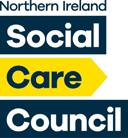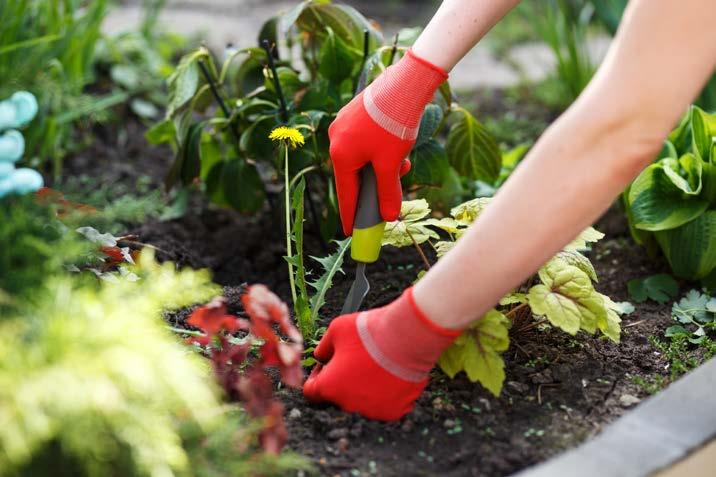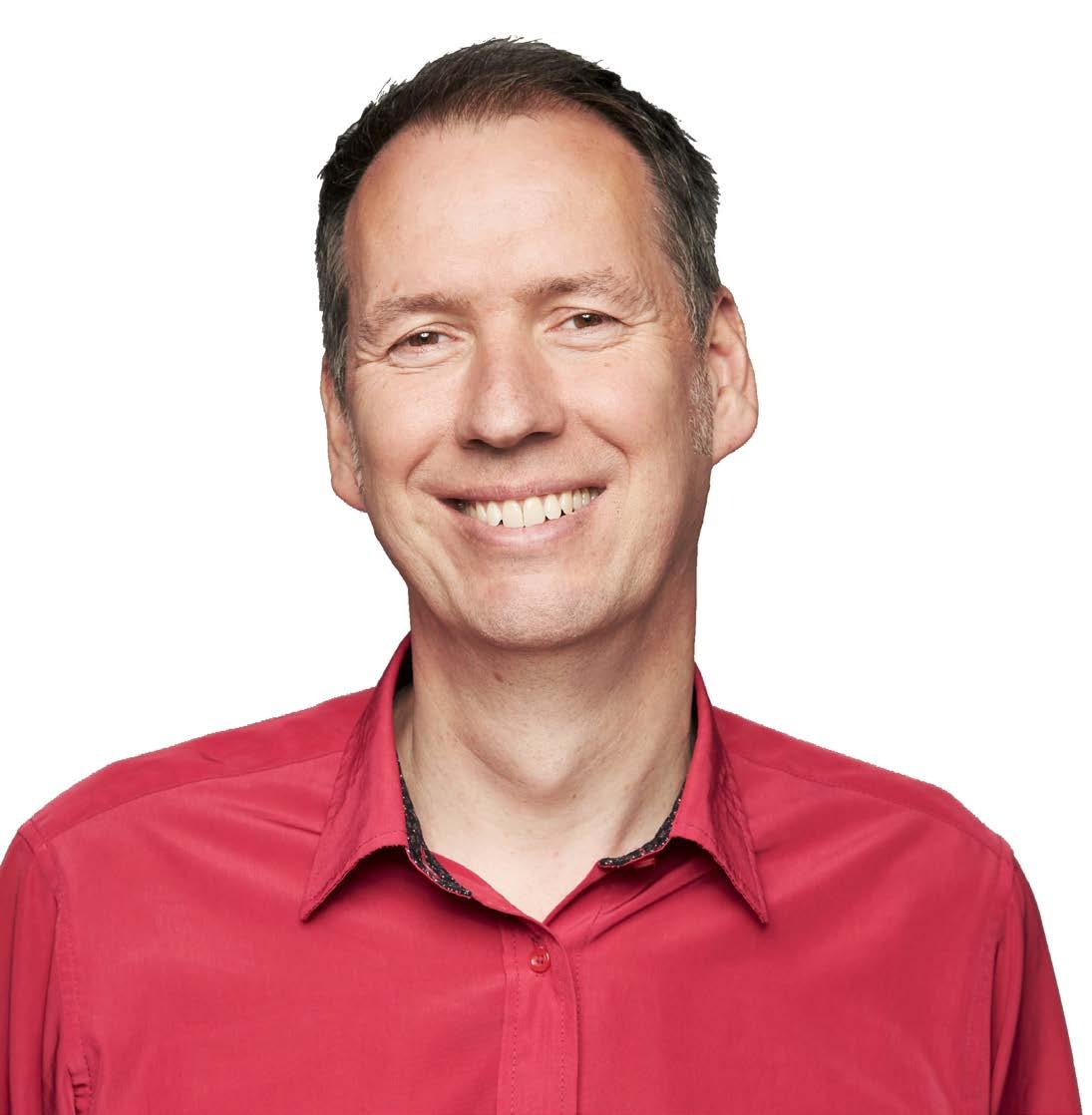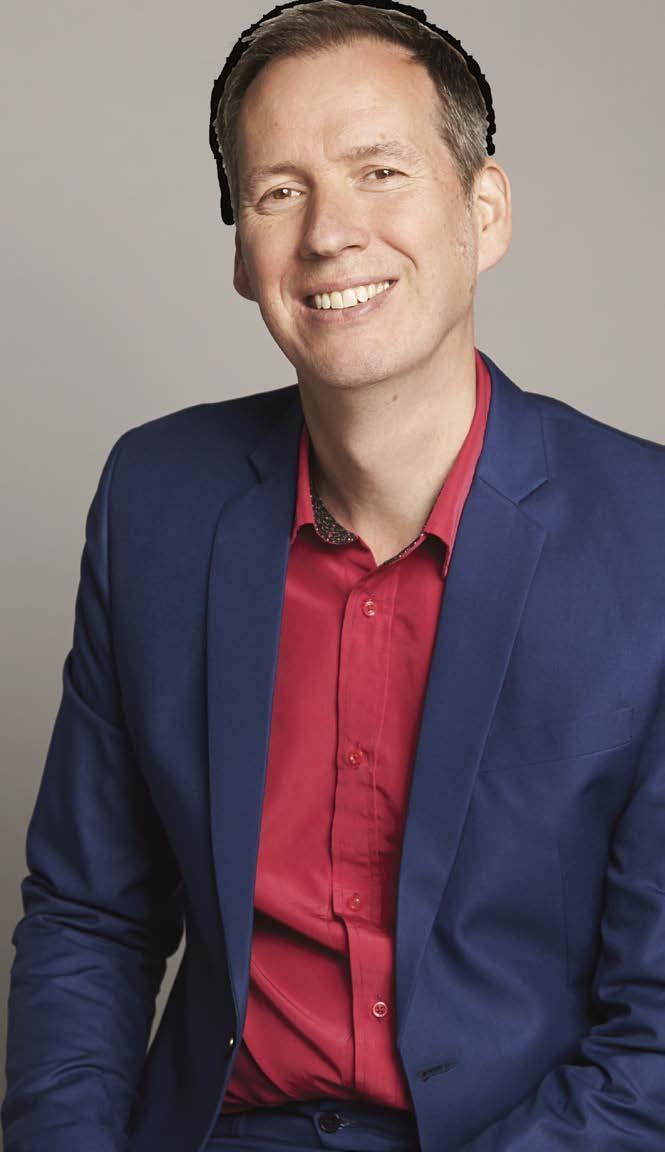























 By Jayshree Dexter
By Jayshree Dexter

Generally speaking, throughout your schooling, the vast majority of the time, nobody teaches you how to learn. Instead, they throw material at you to learn, but nobody ever says, “This is how you learn.”
There are some basic principles, if applied, that will significantly increase your success as a life-long learner.
The first principle is grit. Angela Duckworth, founder and CEO of Character Lab, has done some fantastic research and work to understand what makes learners successful. The number one thing is not their socioeconomic background, nor whether or not their parents graduated with degrees. It is not whether they had a high or low IQ. The number one factor that makes people successful is grit.
This means sticking with something because you will get better if you do that something for long enough. So many people give up because they become frustrated. They cannot overcome the obstacles or the challenges, and they quit. So, if you want to succeed at learning, what the research shows us is that you have to keep learning. As you learn, do not quit. Just keep doing it. The next thing to know is drip learning. Drip learning is doing a little bit every day. Foster a high level of commitment by making it a number one priority. Ensure that you take a little step every day and add a tiny drop to the bucket. Furthermore, if you keep adding those drops to the bucket over time, that bucket will get full. It is going to fill up. You are going to get better. Thus, drip learning a little bit daily, having time on task, and frequent small engagements – at least one engagement a day.
This leads us to another technique to learn more effectively and efficiently. To succeed as a learner is to have direct learning, a little bit every day. So, again, it is getting that time on task. Along with frequent small engagements, you also want multiple perspectives and engagements. So, when you are learning something, talk to people about it. Then, as you engage with multiple engagements, you actually engage with the material differently and gain multiple perspectives.
Another perspective is talking to other people and hearing their thoughts. This deepens the neural pathways and helps you learn more effectively. So, we are learning how to learn. Those frequent small engagements, multiple perspectives, and multiple engagements move us forward a little bit every day, which is called direct learning. That is how you learn.
Thus, drop by drop, the bucket gets filled. You might be adding drops every day; you add a drop, and after three months, you might look in the bucket and decide there is not much water in there. However, after a while, those drops are going to fill the bucket. Thus, drop by drop, the bucket gets filled.
That is how you succeed as a learner. That is how you succeed in life. You just keep working at it.
There are some basic principles, if applied, that will significantly increase your success as a life-long learner.

It was the NLP Awards, that wonderful event where our community gathers to recognise and celebrate the contribution and work of our colleagues and fellow NLP professionals from across the globe.
As a company, we (myself, Lynn McKeown and Leanne McCafferty) were finalists in the Extraordinary Contribution during the Pandemic Award category, along with the fantastic Jessica and Nick Reed-Robbins and Nick Fragkias.
Using the online resource as the basis and consisting of webinars, group sessions and 1:1 coaching, the success of this programme has provided us with a model we can use to further embed these vital NLP skills in organisations.

We are also exploring with NISCC and the CEF how we could adapt and expand this resource for multi-disciplinary teams within GP practices and across the wider public sector.
We had been nominated both for our work with the Northern Ireland Social Care Council (NISCC) in developing an online resource to support the resilience and wellbeing of the social care workforce in Northern Ireland, and for our work with the Northern Ireland Chief Executives Forum (CEF) in supporting senior leaders in public service with the Transformative Leader Programme.

And in true NLP fashion… we all won!
That includes our brilliant partners in NISCC and the CEF and the award is also very much a recognition of their work.
Since winning the award, our relationship with NISCC has continued, including designing and delivering an organisationwide virtual NLP programme entitled Empowering and Supporting You to support staff going forward.
The Transformative Leader Programme has also gone from strength to strength and is now one of the key leadership programmes in public service in Northern Ireland. It has been continually evolving to support leaders to deal effectively with the realities and challenges of leadership. We are also launching an All-Island Transformative Leader Programme to allow senior leaders in Northern Ireland and Ireland to share experiences and learning with each other.
On a personal note, we were very fortunate to spend some time in California this summer on a family holiday and, thanks to Kash (thanks so much, Kash!), I was able to meet and spend some time with the wonderful Robert Dilts and Judith DeLozier and experience some of the atmosphere of that very special campus in Santa Cruz where it all began. I was also able to share some stories of how the brilliant work of Judith and Robert is being used by extraordinary leaders in Northern Ireland in health and social care and in public service to help transform people’s lives for the better.
It was a real reminder that we’re all standing on the shoulders of giants.
If you know someone in our field who is making a difference or whose work deserves recognition, please do take a little time to nominate them for the NLP Awards.
You never know how far those ripples of hope can spread.
The Transformative Leader Programme has been continually evolving to support leaders to deal effectively with the realities and challenges of leadership.
For the Health and Wellbeing section of Rapport in this issue, we are revisiting two projects a NL p are heavily involved with supporting: NISCC and NLP for Health. Both projects have significant long-term goals to put NL p on the map of the healthcare system in the UK. Here’s what they are currently doing…
Ever wondered how to build relationships with your local GP services? Is the process full of flaming hoops and lengthy tenders? Read on to find out…

Our mission, supported by ANLP, to give all GP practices access to NLP professionals in the UK is flying… and we have room for you to jump on board. Tasha, one of the co-founders of the NLP for Health project, shares news on their developments.

We are creating opportunities to make a difference and support our GPs and their teams. We believe it’s the greatest medicine to help the very people who care for our communities, our families and friends. We don’t have time to wait for the government to change its policies or chuck us a huge pot of gold to work wonders with! It starts with us. We are the prescription for change in health and wellbeing. All the signs are there and in action.
As reported in Pulse (the website and free monthly magazine distributed to GPs in the UK), “NHS England has announced the ‘rapid recruitment’ of up to 2,000 additional social prescribing link workers, health coaches and care coordinators among measures to alleviate GP pressures this winter. NHS England today announced a package of measures to ‘rapidly boost capacity and resilience’ in the NHS ahead of ‘additional pressure’ in winter.”
We have an incredible total of 16 coaches who are investing time and energy into building bridges with their local GPs and services. One of our coaches has 30 years of experience in healthcare; one is currently working as a GP. We all have the desire to give GPs, their staff, patients and communities a choice in their health and wellbeing.
Some workshops focused around NLP and health have already been developed and run in the surgery environment, mainly in Kent. Current titles include The Power of Positive Thought and When I Love Myself Enough. New titles in development are Tools for Life, NLP in the Waiting Room, and How to Clearly Communicate Test Results. We are open to ideas, so feel free to share.
• Better outcomes for improved health and wellbeing for patients
• Improved support and health for GPs, nurses, healthcare staff
• Increased opportunities for NLP professionals
We also have a desire to spread our message far and wide in the media to gain traction, build NLP awareness and give us vital funding opportunities. Do you have any contacts with journalists, senior level healthcare professionals, ministers… someone who would like to help us build a funding campaign?
We have a bounty of resources and ideas to nurture the relationship with your GP. We are happy to share how we are doing it, and we’ll hold your hand along the way.
PS. No, we’ve not come across any flaming hoops or tenders so far. All it takes is a series of conversations and offers to help.
If you’re interested in exploring this opportunity, please see https://anlp.org/nlp-for-health to register or email us directly at team@nlpforhealth.org . Let’s connect!
on the links below: https://anlp.org/bitesize-video-resources
visit the
programme https://anlp.org/nlp-for-health for the NLP for Health
and access to the
We have a desire to spread our message far and wide in the media to gain traction, build NLP awareness and give us vital funding opportunities.

 By Eve Menezes Cunningham
By Eve Menezes Cunningham
Imoved into my first ever house, with my own garden and a field, in 2019. Three years on, I still often feel like I’m playing house even though I’m 46. Clueless in so many ways. Learning lots but it’s taking time.
When I read Laura de Barra’s Gaff Goddess, I hoped I could become the kind of person who could be more practical. I had high hopes for a total personality transformation as I read it, imagining myself as the kind of person who could follow such instructions rather than the sensible soul who knows my limitations (embarrassing as they are) and calls experts in.
Being on the west coast of Ireland now, it feels different calling experts in as so many people do so much themselves. There’s a practical capability that everyone I know here seems to exude.
I admire it enormously but haven’t yet learned to embody it. Although I’ve been cycling as my main mode of transport since I was 30, I only recently learned how to pump my own bike tyres. Progress, not perfection.
That being said, my self-talk has improved enough that I can recognise that there are many things I can do and take for granted which other people would struggle with. And I also know that a lot is about conditioning. I read something recently about the author’s delight to be using a fountain pen and knowing how to change the cartridge.
Happy as I was for her, I spent so much time between 11 and 14 obsessing over my handwriting, this is something I’d be able to do with my eyes closed, even though I’ve not seen a fountain or cartridge pen for decades. Is this how other people feel about assembling furniture?
Had I grown up in a house with a garden where we learned to grow stuff and weed etc, I’d be better at it. But my brother is far more practical than me. A recent conversation with him highlighted differences around what they learned in Cubs and Scouts (using different types of knives, knots, compass skills, camping, lighting fires) and what we were fobbed off with at Brownies and Guides (bunched up newspaper as ‘balls’ and empty gift wrap rolls as ‘sticks’ to play ‘hockey’ with, roasting marshmallows over a tealight – I didn’t last long as a Guide).
Still, I am getting a bit better. I’ve divided the house into seven areas and now focus on cleaning, organising and repairs etc. (It’s an old house. Endless repairs) according to that day’s room/area.
Saturday is the bathroom. Sunday, the dining room/guest room. Monday, the hallway. Tuesday the living room. Wednesday, the kitchen (and this includes batch cooking, too). Thursday, World Headquarters (aka my teeny tiny home office).
This has massively reduced my sense of overwhelm and only took a few years to think of from the time I realised dividing my working week like this would be helpful. (It’s something that revolutionised my work life balance.)
While writing this, I’ve finally done the same with the outside now, too. Top of the field, bottom of the field, back yard, patio and around the house, driveway, lavender side of the lawn and rose side of the lawn. Suddenly, when I see ‘weed’ repeated ad nauseam in my desk diary, I no longer get distracted wondering where to even begin but simply do a little in the area I’ve designated for that day.
I’ve always been the type of person to make any space I’ve lived in supportive and mine. They’ve mostly been tiny spaces, as I spent years in studio flats in Cardiff and London and was then back in my childhood bedroom for a while. As a teenager, I painted my bedroom purple and black. To make it even worse, the black paint was poster paint so was a total nightmare to paint over.
I’ve always been what others (often looking horrified) describe as ‘brave’
We’re all unique –it’s about honouring our strengths and supporting ourselves with areas we struggle with.
with colour and style. But I can’t even imagine transferring that sense of ease and confidence about simply figuring it out and fixing any mistakes later with, for example, attempting to figure out the inner workings of anything plumbing, electrical or even something more basic and potentially less lethal, in case of mistakes.
I wondered if some of my NLP colleagues would have similar strategies. A big one was that they didn’t seem to shame spiral at how they couldn’t effortlessly do All The Things themselves. I was reminded that we’re all unique and it’s about honouring our strengths and supporting ourselves with areas we struggle with.
For NLP trainer Bettina Pickering , what makes her home a home isn’t about colour or furniture (although she has an impressive Can Do attitude to building all sorts), but her cats.
She wants to know “that the cats love it.” Bettina feels most at home when surrounded by “the cats and their furniture, my special furniture, blankets, rugs, warmth, my kitchen equipment, herb and spice collection and being able to find things.” She also appreciates “the views, my developing garden, the house having so much light, my stressless recliner (when I am able to sit on it and it’s not taken by a cat), my shelves of herbs and spices and my kitchen gadgets.
“My DIY strategy is to fix what I can myself, learn as much as possible and get in experts when needed, if such experts exist. I tend to buy the gear, then procrastinate a lot, and finally do it.

“I am kinaesthetic and visual so like to feel textures and see images and colours. The cats are the same, so it works. I look at what the cats and I use/need most and have that out. That’s what I surround myself with. I like to be organised enough to be able to find things. Not being able to find things causes stress. I have a cleaning routine that works for me: one week I deep clean downstairs super well, and next week the upstairs. In between, I hoover where needed. Don’t be afraid to change things if it does not feel right.
Sometimes living in a space reveals the ideal layout after a while. It may mean passing things on or donating them.”

Host of the Practical NLP podcast, Andy Smith , says, “Know your limits. I’ll tackle a lot of jobs (I’m making some shutters at the moment) but not often enough to be buying specialist equipment like routers. There are some things it’s better to employ a professional for. Watch YouTube. There’s so much knowledge out there. Watch a few videos on the same subject to make sure you’ve found a presenter who knows what they’re talking about.”
Andy credits his wife’s style for “pleasing décor” with helping him feel at home: “She’s an interior designer so I leave the decisions to her and trust her judgement 100%.” He recommends having a quiet, closed off workspace “and (if you can afford it) enough of a buffer zone from neighbours.”
“I don’t have a strategy as such,” says Hannah Martin , NLP practitioner and founder of Talented Ladies Club. “I just choose colours and objects for a room
that appeal to me and feel right. Once we have a key colour or style for a room, I naturally gravitate towards items that fit, but there’s no conscious decision or naming of a style. I love shape and colour and choose things that I love. It all evolves organically.”
Hannah appreciates “having things around me that I love; that fill me with joy. I love comfort, so sofas, chairs and my bed need to be inviting and comfortable. I also surround myself with things that trigger happy memories: objects from my travels, photos and prints from and of friends and family, books I enjoyed reading, ornaments that were given to me as a child. The result is eclectic, but it feels 100% me.
“For me it is simple: build a home you love. Don’t choose things because they are in fashion, because a celebrity has them, or even because a relative gave them to you. You are the one who lives in your home and the only one who really needs to feel at home there. So make it a reflection of who you are and what you love.”
“You are the one who lives in your home and the only one who really needs to feel at home there. So make it a reflection of who you are and what you love.” Hannah MartinEve Menezes Cunningham is the author of 365 Ways to Feel Better: Self-care Ideas for Embodied Wellbeing. You can access free resources and more about her NLP and other services at selfcarecoaching.net
Although I created the new verb, Dû, in 1999, as part of developing the Lightning Process (LP), I realised recently that I’ve yet to write about it in detail for use by those working in NLP. I hope this article fills that gap. For context, the LP is a research-based programme which has been successful in helping many people recover from chronic health conditions. It is based on NLP but has elements drawn from other disciplines combined with some new concepts. As a result, a thorough knowledge of NLP is essential to becoming an LP practitioner, but additional training is also required. Dû, however, can be adopted by anyone.

The first very reasonable question that might spring to your mind is: “Why would you need a new verb – haven’t we got enough already?” An overview of the process of creating a new verb might be useful in answering this. A new verb is required when we want to describe a new phenomenon or radical solution to a problem that can’t be effectively and concisely expressed using existing terms. In recent years, we’ve become familiar with new phrases like ‘Google it’ or ‘I just tweeted’, where, for example, ‘google’ is the verb that describes ‘to open a browser and search a specific database for a particular term’. Once we understand its meaning, the new verb is faster and clearer and easier to use.
Dû also provides the same kind of benefits. To understand its purpose, we need to explore the problem that called for its development. It arose from a modelling project that also resulted in the creation of the LP. It focused on identifying the patterns observed in people with physical and mental health issues who wanted to recover and had tried most avenues but remained stuck.
Analysing the language of hundreds of modelling participants identified that many used a language pattern (called ‘passive’) that described their sense of a lack of power to make any difference to their issue. The shared Latin root of the words patient and passive ( pati – to suffer) suggests this connection has been evident for some time. This sense of lack of agency confirmed the feeling that solutions would have to be delivered by external agents, such as expert clinicians, medicines, new research or maybe the passing of time. As the participants had tried so many approaches yet remained stuck, their sense that the solution must be beyond them was quite an understandable perspective. It was also clear that this needed to change, and that becoming active and empowered in the change process was a key part of the solution. I needed to find a simple way to explain ‘how to become aware of passives and restore a sense of being active in creating the solution’. As with the ‘google’ example, the answer was to develop a new verb, dû.
Dû has a slightly similar yet different meaning to the familiar
verb ‘do’ and is best explained by example. If someone describes themselves as ‘being stressed about the world economy’, we notice that although this seems to be a good description of their experience, there are some inaccuracies within it. On reflection, we can see that the world economy is not what is distressing them; it is that they are stressing themselves. We know this because the world economy may be at a consistent level of trouble over a particular week, but the person’s levels of stress will vary depending on whether their focus is on the economy or more pleasant things. We can also notice the passive position they’ve taken. The world economy is cast as the cause of their stress. As they can do nothing to change the world economy they are therefore destined, according to the structure of the sentence, to continue to be stressed and have no power to change that either.
Dû is used to improve the accuracy of the sentence. It has two core components. First, it restores our active role – identifying that we are involved in the issue in some way (after all, if I am stressed, the stress is occurring in my nervous system). Second, it emphasises that this is occurring at an unconscious and unintentional level. This is the central difference between do and dû. While ‘do’ suggests we are doing it on purpose and are at fault, dû ensures there can be no sense of blame, as our response was unconscious and unintentional. But, importantly, dû still identifies that we have influence and can change what happens next.
Speak both sentences below out loud to experience the effects of using dû:
“I am stressed about the world economy.”
transforms to:
“I am DÛING stressed about the world economy.”
This concept of understanding that we have influence is not new. However, the use of this new verb produces some novel and interesting effects. It provides a rapid way of understanding the passive nature of our original statement and identifies how we can instantly change our sense of influence and choice. And it does this in a number of ways:
Awakening: the unfamiliarity of saying ‘I am dûing stress’ is designed to ‘sound wrong’. This helps us identify and question our sense of having no power in creating a solution.
Options: this new awareness is accompanied by the realisation that: ‘If I am dûing it, then maybe I can stop dûing it and do something else.’
A new verb is required when we want to describe a new phenomenon or radical solution to a problem that can’t be effectively and concisely expressed using existing terms.
Distance: the recognition that ‘I am dûing it’ removes the sense of it just happening to me or that it’s an intrinsic part of me. Instead, it provides a feeling of distance and dissociation from the experience, which builds my sense of having some power to change it
Temporariness/process/de-nominalisation: technically, dû is de-nominalising the nominalised verb. Once a verb (for example, angry) that describes a temporary and changeable process becomes nominalised (appears as a noun), it feels like it is a more static object (the anger in me) and loses its sense of changeability, of a start and finish. The active nature of dû recovers that sense of process and restores the understanding that, although it is currently occurring, it is impermanent and there will be an end to it.
Cause and effect: as can be seen in ‘the world economy makes me stressed’ example, the use of dû identifies the cause-and-effect meta-model issue and resolves it immediately by uncoupling the two tangled sections ‘world economy’ and ‘my stress’.

Identity: dû also helps shifts identity level statements to
behavioural level ones (as in Dilts’ Neurological Levels), for example, moving from the disempowering position of ‘I am a depressive’ to ‘I dû depression much of the time.’
The fact that the adoption of a single word can address multiple levels of distortion, generalisation and deletion, in a moment, is its key power. We have also found that it can be understood and adopted by anyone six years old or above and can be used in multiple languages (see www.duing.org for more).
I hope this serves as an introduction to a new branch of the importance of language so central to NLP. There’s much more to be said about how dû transforms medical nominalisations such as ‘infection’ back into more correct empowering descriptions of the ‘infectious process’, and which words alert you to passives (I am, I have, it is, etc.), elements I will be covering in the Masterclass at the 2023 conference. In the meantime, if you want more on this, you’ll find the Dû book and all the research at www.philparker.org , and I look forward to connecting with you and finding out your thoughts on applying this at the conference.
Dû has two core components. First, it restores our active role, identifying that we are involved in the issue in some way. Second, it emphasises that this is occurring at an unconscious and unintentional level.


